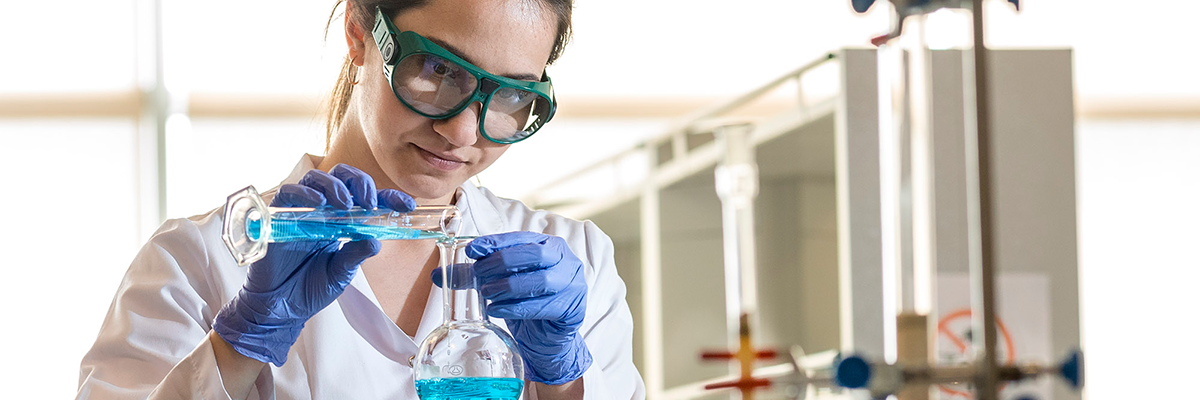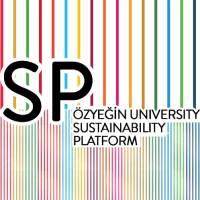Research

Sustainability is a core principle at OzU which also stands out in its research practices. Research on the United Nations’ Sustainable Development Goals corresponds to 20% of OzU’s collective research funds.
In fact, these research projects extend far beyond the limits of research, and cover a wide spectrum of activities, from academic publications to conferences, from MakerLab, which provides the necessary infrastructure for research, to Finance Laboratory, and even training programs for women entrepreneurs. OzU’s recent efforts in sustainability are classified in the Figure below by the United Nations’ Sustainable Development Goals.
As shown in the Figure, OzU has made and is still making great achievements in the areas of SDG 9 (Industry, Innovation, and Infrastructure), SDG 11 (Sustainable Cities and Communities), and SDG 8 (Decent Work and Economic Growth). Another reason why these SDGs are important is that they also overlap with the priority areas for Turkey’s development. With all these practices, OzU makes a significant contribution to the sustainable development of Turkey.
OzU also effectively and efficiently runs its sustainability practices though the research centers it has founded. Some of these research centers are Center for Energy, Environment, and Economy, Energy Efficient Electronics and Lighting Technologies Application and Research Center, Applied Research Center of Technology Products, Center of Excellence for Optical Wireless Communications Technologies, Migration Studies Lab and Center for Entrepreneurship. All the research centers at OzU are available here.
Sustainability Clusters
Research at OzU is conducted with a multidisciplinary approach within the framework of the United Nation’s 17 Sustainable Development Goals. OzU has also created a series of research clusters to offer a multidisciplinary research environment and promote collaboration. Research clusters are intended to propel OzU’s capacity and experience in different fields of research while creating an on-campus network for faculty with similar research interests, in particular to promote interdisciplinary cooperation and to understand the existing research needs. To achieve this goal, Turkey’s priorities for sustainability and OzU’s strengths were combined together to form the following research clusters:
The main focus of this cluster is economic growth. Therefore, the primary SGDs for this cluster can be listed as follows: SDG 1 (No Poverty), SDG 2 (Zero Hunger), SGD 8 (Decent Work and Economic Growth), SDG 9 (Industry, Innovation, and Infrastructure), and SDG 12 (Responsible Consumption and Production). Here, the strong, two-way interaction among SGD 8 (Decent Work and Economic Growth), SDG 9 (Industry, Innovation, and Infrastructure), and SDG 12 (Responsible Consumption and Production) is particularly noteworthy. These SDGs both affect and are affected by each other. Therefore, these areas particularly have high potential for multidisciplinary studies.
The secondary SGDs for this cluster are identified as follows: SDG 4 (Quality Education), SDG 7 (Affordable and Clean Energy), and SDG 10 (Reduced Inequalities).
The main focus of this cluster is cities. Therefore, SDG 11 (Sustainable Cities and Communities) is the primary SDG for this cluster. Also, SDG 11 (Sustainable Cities and Communities) is heavily influenced by SDG 8 (Decent Work and Economic Growth), and SDG 9 (Industry, Innovation, and Infrastructure). Therefore, careful attention must be paid as to how a project or study developed within this cluster may affect the cities. SDG 11 (Sustainable Cities and Communities) is not only affected by other SDGs but also affects them. The main SDGs affected by SDG 11 (Sustainable Cities and Communities) are SDG 1 (No Poverty), SGD 3 (Good Health and Well-Being), SDG 5 (Gender Equality) and SDG 7 (Affordable and Clean Energy). It should be noted that the outputs of any projects run by this cluster will have implications on poverty, health and well-being, and gender equality.
The main focus of this cluster is energy and sustainability. The cluster is focused on two primary SDGs: SDG 7 (Affordable and Clean Energy), and SDG 13 (Climate Action). The strong two-way interaction between these two SDGs must be emphasized. The secondary SDGs for this cluster are SDG 11 (Sustainable Cities and Communities), SDG 12 (Responsible Consumption and Production), SDG 8 (Decent Work and Economic Growth), and SDG 9 (Industry, Innovation, and Infrastructure). SDG 7 (Affordable and Clean Energy) is affected by other SDGs, rather than affecting them. The main SDGs that have an influence on SDG 7 (Affordable and Clean Energy) are as follows: SDG 1 (No Poverty), SDG 6 (Clean Water and Sanitation), SDG 13 (Climate Action), SGD 8 (Decent Work and Economic Growth), SDG 9 (Industry, Innovation, and Infrastructure), SDG 12 (Responsible Consumption and Production), and SDG 16 (Peace and Justice). Therefore, this Cluster has a high potential to conduct multidisciplinary studies with other clusters.
The main focus of this cluster is to reduce all types of inequality in society. Therefore, SDG 10 (Reduced Inequalities), SDG 5 (Gender Equality) and SDG 16 (Peace and Justice) are the most important SDGs for this cluster. While SDG 5 (Gender Equality) is affected by almost all of the SDGs, it also has heavy influences on SDG 1 (No Poverty), SDG 8 (Decent Work and Economic Growth), and SDG 9 (Industry, Innovation, and Infrastructure). In addition, SDG 10 (Reduced Inequalities) also has a heavy influence on SDG 1 (No Poverty) and SDG 3 (Gender Equality), and is heavily influenced by SDG 4 (Quality Education) and SDG 9 (Industry, Innovation, and Infrastructure). All these relationships also make SDG 3 (Quality Education), SDG 2 (Zero Hunger), and SDG 1 (No Poverty) secondary SDGs for this cluster.















